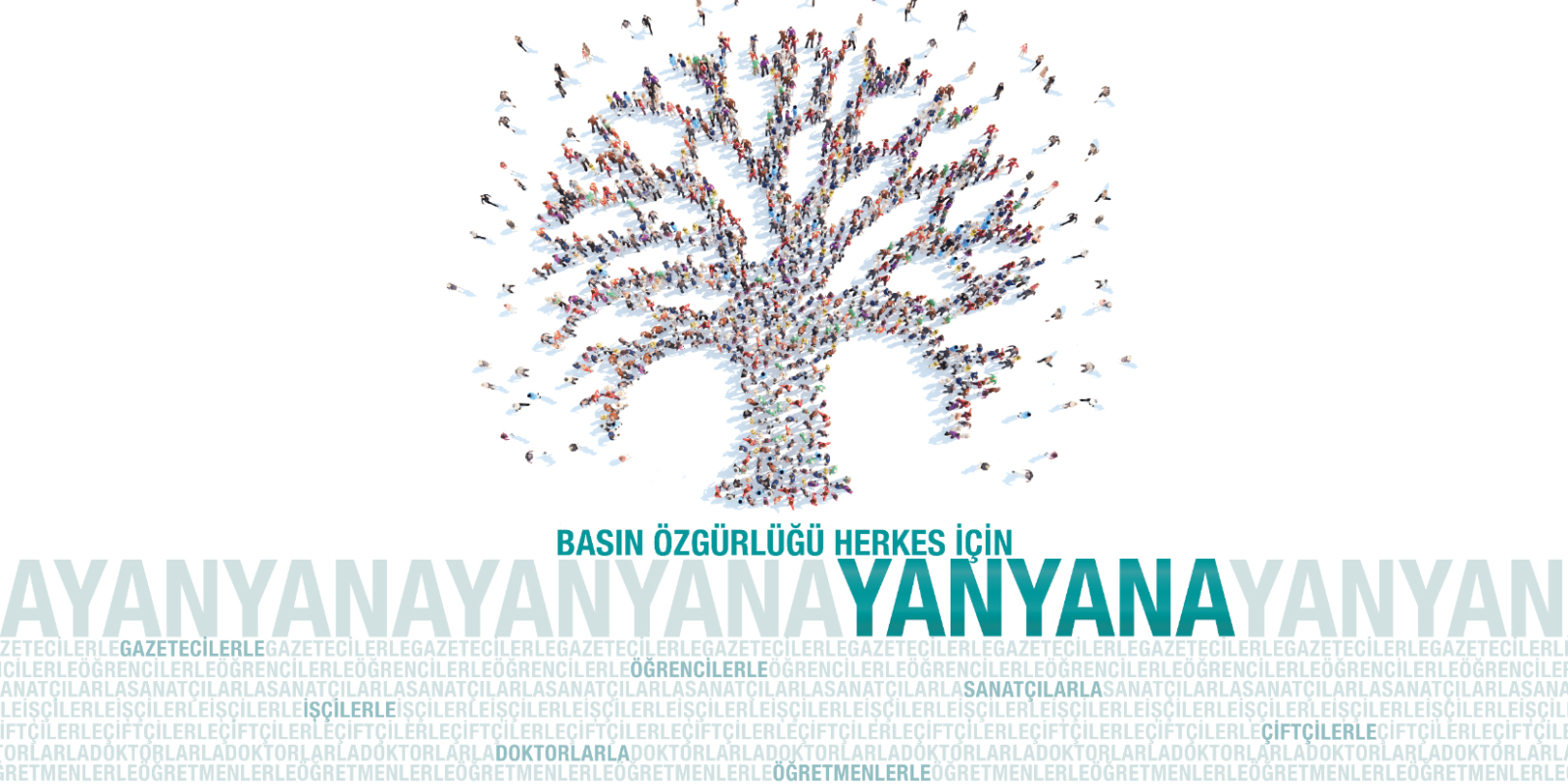TGS Press Freedom Report 2022-2023
“Freedom of the Press for All: Side by Side”.
Violations of rights targeting journalists, obstructions to news reporting, pressures on media institutions… On May 3, World Press Freedom Day, journalists cannot wield their pens freely.
As in previous years, the 2021-2022 Press Freedom Report, prepared by the Journalists’ Union of Turkey (TGS), was crafted with the aim of identifying interventions against press freedom and pinpointing the sources of such interference over the past year. Support requests reaching the TGS, legal case follow-ups by our legal team, interviews conducted during our prison visits, our information requests, and media-reported news are the primary data sources of the report. Additionally, we reference official and academic sources and scrutinize both jurisprudence and legislative changes.
With this report, TGS broadly examines interventions from the legislative, judicial, executive branches and third parties. It also lays out the strategies of de-unionization and the imposition of insecure employment conditions aimed at undermining the fight for press freedom.
Nevertheless, the rising number of journalists advocating for editorial independence, economic, and social rights under the umbrella of the Union is a beacon of hope. Our experiences demonstrate that confronting these challenges is achievable only when we stand united. There isn’t any challenge that a unified and organized media sector can’t surpass.
Highlights from the report include:
23,907 of the registered employees in the “Press, Broadcasting and Journalism” sector are actively engaged in journalism.
According to TÜİK data, the general unemployment rate in 2021 was 12%, but among journalism graduates, it spiked to 18.3%. This comparatively high unemployment rate perpetuates the strain on the job and income security of practicing journalists.
Although there’s been an increase in journalists holding official press cards compared to the previous year, merely 68.72% of registered journalists possess one. This percentage further diminishes when considering uninsured or freelance journalists.
The impediments to editorial independence are as alarming as the economic and social rights of journalists. Despite all barriers to unionization, within a year, TGS successfully achieved a majority in seven media organizations, three of which operate on an international scale and four on a national scale.
Currently, 26 journalists are incarcerated due to their journalistic endeavors. Even as pandemic restrictions have been eased, the rights of these imprisoned journalists are being infringed upon by prison administrations, citing these very pandemic measures as justification.
Journalists’ requests for transfer are being declined. Their right to probation is being arbitrarily denied by administrative boards. They’re unable to communicate with their families, socialize, get updates from the outside world, access healthcare, and are held in unhygienic prison conditions. The most prevalent accusations levied against them include ‘membership of an armed organization’ and ‘making propaganda for a terrorist organization’.
Over the past year:
31 journalists were detained for an accumulated 52 days.
Investigations were initiated against 60 journalists.
273 journalists faced legal proceedings across 128 cases.
Journalists received combined prison sentences amounting to 75 years, 5 months, and 26 days.
TGS documented rights violations by interviewing 18 journalists in 10 prisons.
57 journalists experienced physical assaults, and 32 received verbal threats.
Access was blocked to 54 news websites and 1,355 news articles, with 19 news articles being deleted from content.
Administratively, through RTÜK’s actions, fines amounting to a total of 10,427,902 TL were imposed via 61 separate decisions. In 2021, 559 press cards were revoked. Based on data TGS procured from the Directorate of Communications, 16,429 individuals currently hold a Presidential press card. The Press Advertisement Institution handed down a total advertisement suspension of 25 days, distributed among various newspapers (Cumhuriyet faced 16 days, Evrensel 5 days, and Sözcü 4 days).
Given all these circumstances, journalists are intensifying their fight for their economic and union rights. Union rights and collective labor agreements continue to be the sole avenues for achieving a just wage and organized working conditions. Additionally, union protections bolster the standing and prestige of the journalism profession.
TGS continues to bolster its dominant position within the industry by augmenting the number of establishments it represents annually. By May 2022, TGS represents 15 media entities, including notable names like Medya AŞ, Podfresh, BBC Turkey, AP, Dokuz8, Cumhuriyet, AFP, İz Gazete, Reuters, Refinitiv, Duvar, Yön Radyo, 9 Eylül, Bianet, and Evrensel.
Lawsuit proceedings are ongoing, having been initiated because the employers of the Hürriyet newspaper, Halk TV, and FOX TV opposed TGS’s representation. Due to such objections, around 1,400 media professionals are being denied their union rights.
file:///C:/Users/TGS_PROONE_PC2/Downloads/TGS%20PRESS%20FREEDOM%20REPORT%202021-%202022.pdf







